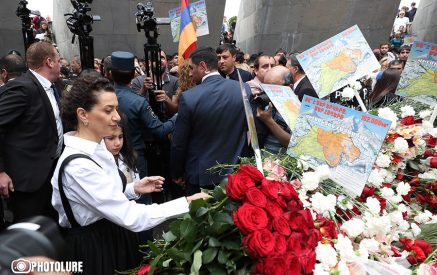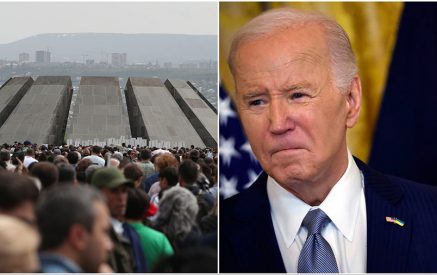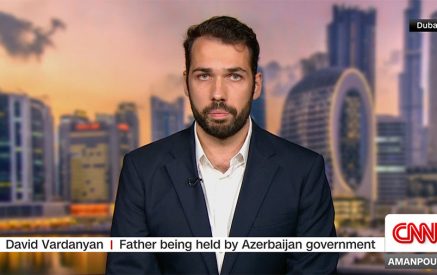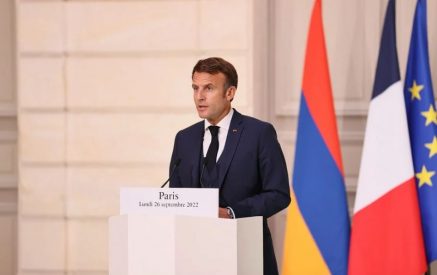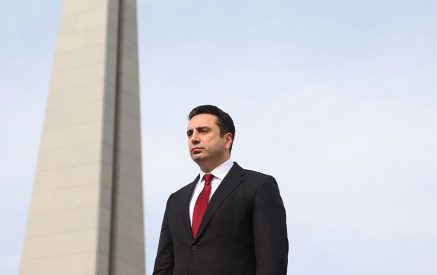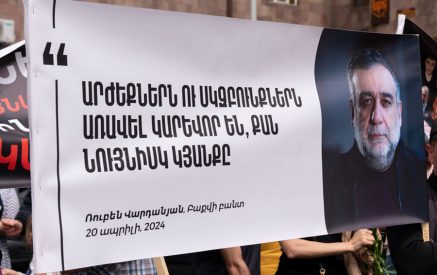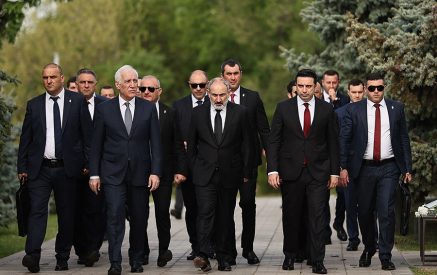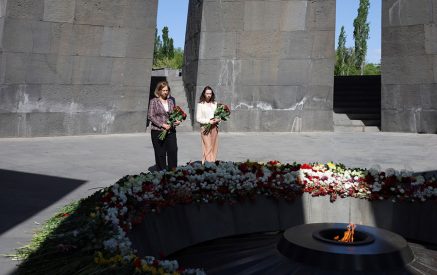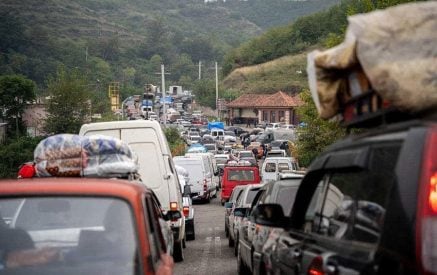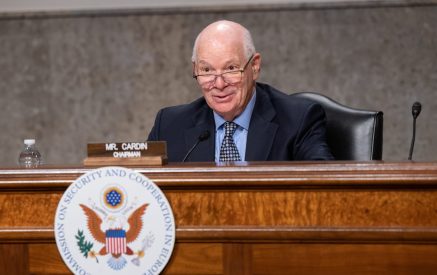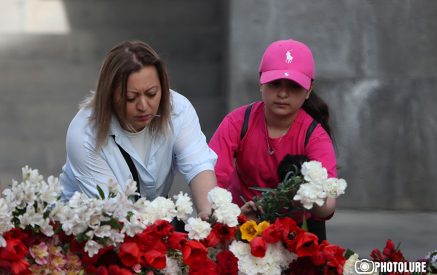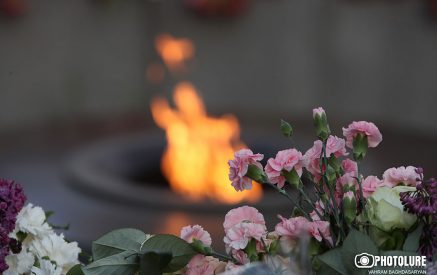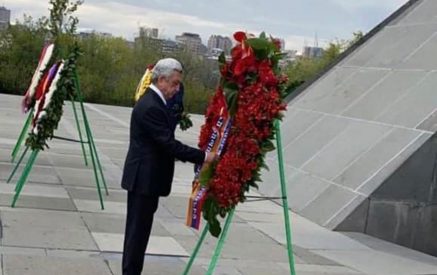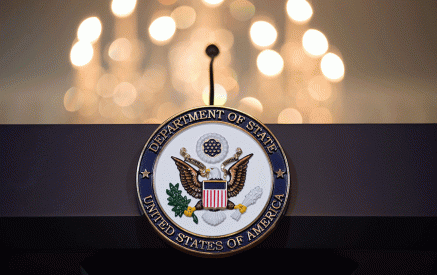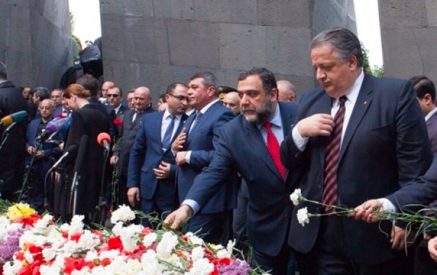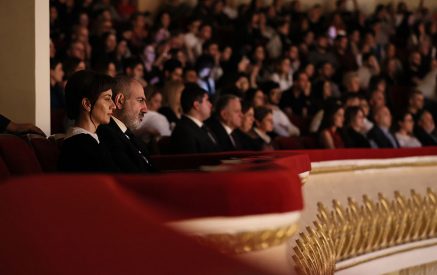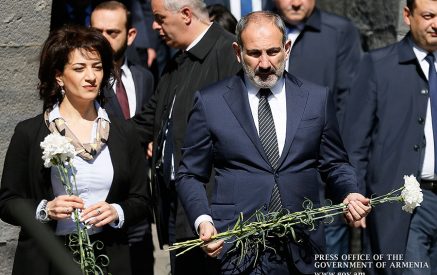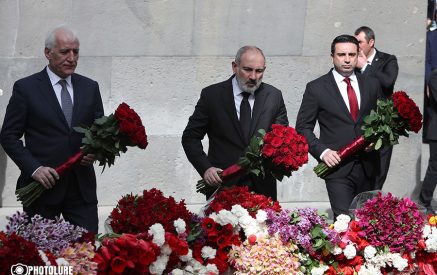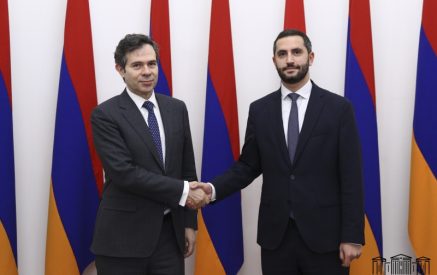
– Mr. Safrastyan, the deputy chairman on foreign relations of the ruling Justice and Development Party stated the other day that Turkey stops her “zero problems with neighbors” policy from now on. According to you, what caused such a change?
– When we speak of Davutoglu’s “zero problems with neighbors” idea, we can immediately assert that no such thing really exists. In reality the Turkish press and public think that this policy has failed, because Turkey actually doesn’t have “zero problems with neighbors”, but has “zero neighbors without problems”. Turkey’s relations with Israel, Syria, Cyprus and considering that, with the whole EU testify to that. Turkish-Armenian relations have also regressed recently. Therefore, it is quite obvious that Turkey’s relations with neighbors do not really correspond to “zero problems” slogan and it is logical that they just want to get rid of that.
– However, Turkey was trying to speak of signing the Turkish-Armenian protocols in that context, stressing that the process of establishing relations with Armenia was a part of “zero problems with neighbors” policy. If the Turks give up that policy now, can one assume that they give up the obligation of ratifying the protocols by that?
Read also
– As to the protocols we have to give more importance not to the statements made for the outside world, but to the pursued diplomacy itself, following which, I cannot see any tendency that the Turkish ruling top tries to normalize relations with Armenia. There is no such thing.
– When it turned out that the Armenian-Turkish protocols are taken off the Turkish parliamentary agenda, you stated that Armenia should have denounced the protocols first. Moreover, you said that they would never return to the Turkish parliament. However, we saw a month later that the protocols entered the legislative body of that country again. How do you explain your wrong suggestion and don’t you think that in this case the Armenian authorities did the right thing not denouncing the protocols?
– What I said was caused by an objective analysis of the reality that we also witness today, i.e. Turkey has no interest in promoting those protocols.
– In this case, why were those sent back to the parliament?
– First not to take the responsibility for the failure of the process and second they say that the protocols are still there by that and it is possible those will be promoted one day.
– Would it have been right, if the Armenian side had listened to your urge and did what Turkey avoided doing first?
– You know, it was just an issue of a diplomatic opportunity, because when the protocols were taken off the Turkish parliamentary agenda, we couldn’t be sure that those would be returned. Therefore, we could seize that opportunity and say that we don’t promote those on our behalf.
– So do you want to say that we could have seized that opportunity to fix our diplomatic mistake, i.e. signing the protocols?
– I don’t agree to that definition. Since also taking into account the decision of the Constitutional Court, by which certain restraints were imposed, those protocols would not do us any harm, if they were ratified as they are.
– Given the two years, don’t you think that starting this process was not right in the first place?
– What do we have now – the same situation, as we had before the process was started; we didn’t gain anything, neither did we lose. I mean those three problems, over which the Turks wanted to make us compromise, haven’t changed, the Karabakh issue, the Genocide recognition and the treaty of Kars. There was no compromise.
– Because the protocols were not ratified. However, if they were ratified, the compromise concerning the treaty of Kars, i.e. recognizing the existing border, would have been unavoidable.
– We wouldn’t have compromised on the Kars issue, because there wasn’t a point of recognizing the treaty of Kars in the protocols. We would have recognized the existing border anyway, but it doesn’t mean that we would have also recognized the treaty, according to which that border exists, by that. In any case, the protocols are certainly a compromise. However, the limits of compromise were explicitly stipulated by the decision of the Constitutional Court.
– Mr. Safrastyan, when the Armenian-Turkish protocols were to be a subject of a public debate, I, following your speeches and interviews on TV before that, to be frank thought that you will be the strongest to oppose those protocols. However, to my and many people’s surprise, you didn’t. Why so?
– It is a very good question. So many years have passed, nobody has asked this question. I didn’t do that, because I realized that we were afforded an opportunity to gain much, losing little. Let me tell you a secret – that famous decision of the Constitutional Court was written on this table.
– Serzh Sargsyan stated two years ago that in any case we would end up stronger, as a result of Armenian-Turkish process. In your assessment, how stronger are we now?
– Every country leader, for example Clinton while speaking of this issue always says that the ball is in their court, the Turks have to make the move.
– However, the Turks don’t make any move. In that case, what do we gain from Clinton’s speeches?
– Growth of trust toward us as a partner. However, certainly there were losses in this process and first of all for President of Armenia Serzh Sargsyan who, in his assessment, wasted big political capital on all that, which was not comprehended by the Diaspora. Nevertheless, at the same time we gained my mentioned diplomatic pluses, which I believe will have a positive impact on the negotiation process of the Karabakh issue.
AREVIK SAHAKYAN
































